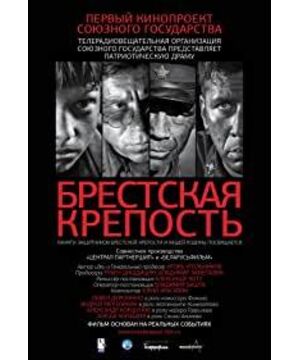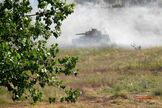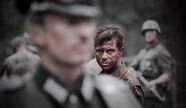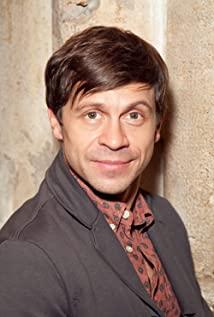A lot of work has been done on the script. The summer recital at the beginning not only introduced the characters on the stage and set off the peace before the war; but also echoed the mourning at the end of the film, and deepened the image of the characters. The megalithic monument of Novosibirsk makes people feel the severity of the war and the respectability of the heroes in the film.
A perfect promotional film.
However, the truth is not entirely true. Let's flashback step by step. The political commissar Fuming resolutely stood up and confronted the death threat in the movie, and was immediately shot dead. The real situation is that the political commissar changed into soldier's clothing, hoping to be unrecognized, but was reported on the spot by his own soldiers. A good propaganda film does not need a traitor. The film has quietly changed its appearance, and it is even more prominent in the heroic spirit of the political commissar.
Akimov, a small cadet who runs through the play, is indeed a man, his real name is Peter Kreba, and his deeds are also true. Only after the war, he went to prison for sheltering criminals. Fortunately, the movie ended early, and the latter story does not require publicity.
Little Akimov’s playmate was not Renya, but a little boy. The impact of the two children fishing when the battle started, did not exist at all. It was originally just their fishing plan. The battle started at more than three o'clock in the morning, which was not a good time for fishing.
It was not the younger Akimov’s brother who destroyed the German tanks in the battle, but an unnamed lieutenant. Little Peter's real brother, lived to the end of the war.
Remember the guy who fell in love with the waitress of the club? The German army insulted his lover and killed the German army with a grenade in anger. None of these two characters exist. When Germany invaded the Soviet Union, it might have abused many Russian women, but after the war, just ask Berlin women and you will know what happened. Even in Northeast my country, remember that China is an ally. There are only beasts in war, not humans.
It is a fact that the German army massacred political workers and the border guards did not accept surrender. It was only in 1949 that the Soviet Army entered Poland and implemented almost the same standards. See Katyn incident.
The Soviet surrendered soldiers were censored after the war, and many people were considered tainted. No need for publicity, no need. In real history, a soldier risked his life to fetch water after the siege of Brest. When he returned, he was shot in the back. He was afraid of being mistaken for being shot while fleeing, and eagerly asked his comrades to testify. The purge before the war even hurt the Red Army's vitality.
Lieutenant Kozvatov and Major Zavrilov looked completely different from the actors in the movie. Not so personal. It is more of a hero.
Compared with the subsequent Stalingrad battle, the brutality of the Brest Fortress was far worse. In the entire Soviet campaign, the sacrifices made by the Soviet people were much more painful. The Stalingrad battle was fought for more than half a year, but was not defeated. Brest was captured within a week and a half. The few resistances were only individual fighters, and the big battle was already foregone. The existence and activity of French resistance fighter Marqui does not mean that Petain has surrendered and Paris has already fallen.
The truth is not true, and the false is not false.
Siege battles in history are often the hardest to fight. In Chinese history, there are often those who have been difficult to get off for several years. Suiyang's sleepiness in the Anshi Rebellion was also a period of exhausting menstrual years, and it was only a few years away. Brest Fortress, as an important military site that has experienced World War I or even a longer history, it is a shame to be restrained for a week. The reason is that in modern warfare, the fortress strategy has been abandoned. Even in World War I, Germany bypassed the area. Only the tenacity and fearlessness of the Red Army soldiers can wash away the strategic embarrassment.
Not only is the strategy lagging behind, but the tactics are not clever. The old-style military barracks and the commander’s quarters are far apart, and the levels are distinct. The officer’s life is very comfortable. Unfortunately, the Germans did their homework and laid ambushes between the dormitory and barracks, and eliminated most of the officers. It was a perfect beheading tactic. The political commissar Fu Ming escaped from staying in the barracks that night because he had no family members.
Not only did the German army dispatch contingents, the timing of the selection was also very clear. At that time, large troops left the fortress to go out for training. Not only was the fortress short of people, but the heavy weapons were not in place at all. When the Germans attacked, several hot air balloons were raised as artillery observation posts, and the fort arsenals were first blown up. Three o'clock in the morning, sleepy and not awake, is an excellent time to attack.
The German army surrounded the fortress with water, and even the moat was buried with iron fences. The famous Karl mortar not only bombed the arsenal. Even the water supply system is destroyed, hunger and thirst is the best weapon.
The truth that is not entirely true makes the propaganda film; the stupidity of the winner becomes tragic; the shrewdness of the loser becomes a laughing stock. . . . . .
History is often written by victors.
View more about Fortress of War reviews











